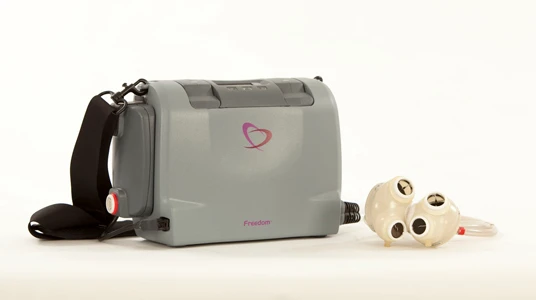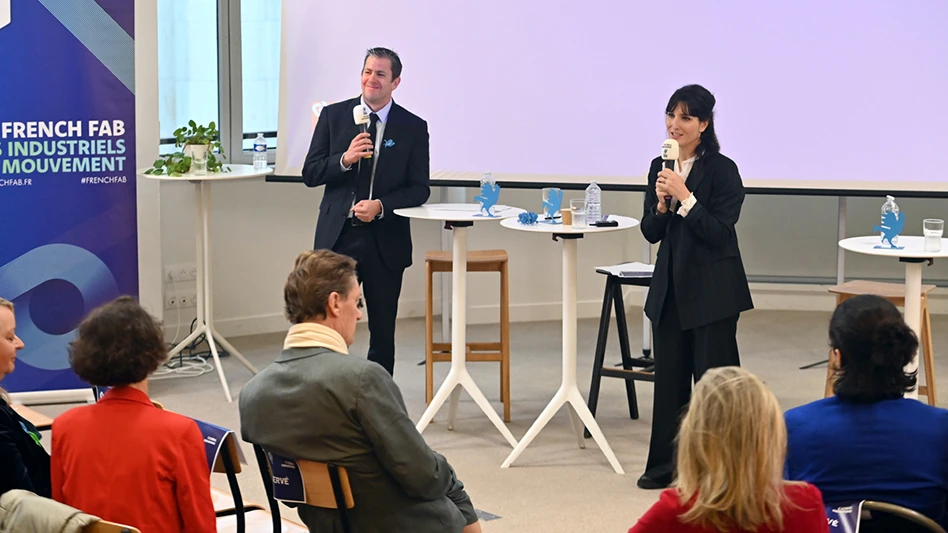
SynCardia Systems Inc., manufacturer of the SynCardia temporary CardioWest Total Artificial Heart, today announced it has received conditional approval from the U.S. Food and Drug Administration (FDA) to conduct an Investigational Device Exemption (IDE) clinical study of the Freedom driver system, the first-ever U.S. portable driver designed to power SynCardia's Total Artificial Heart. The IDE clinical study is designed to demonstrate that stable Total Artificial Heart patients in the U.S. can manage their portable driver outside the hospital environment, including at home, in their communities and at step-down facilities.
While the Total Artificial Heart has the highest bridge to transplant rate of all approved mechanical circulatory support devices, the major drawback of existing technology is that patients are confined to the hospital while they await a transplant. This is because the only FDA-approved driver for powering the Total Artificial Heart is the 418-lb hospital driver nicknamed “Big Blue”. Through the IDE, stable Total Artificial Heart patients who meet study criteria will have the option to be discharged from the hospital with the Freedom driver, with the goal of enabling them to resume normal activities at home and in their communities. The Freedom driver weighs only 13.5 lb including two onboard lithium-ion batteries and a power adaptor. It is designed to be carried by the patient in the Freedom Backpack or Shoulder Bag.
“While waiting for a transplant, patients can stay in the hospital for several months and in some rare cases, more than a year,” says Dr. Stephen Clayson, associate surgical director of the Utah Artificial Heart Program at Intermountain Medical Center. “We are pleased to initiate the IDE clinical study and evaluate the use of the Freedom driver to power the Total Artificial Heart. If the IDE clinical study of the Freedom driver is successful, patients will be able to sleep in their own bed, spend time with their families and be more self-sufficient.”
The SynCardia Freedom driver system IDE study is designed to demonstrate that the Freedom driver is a suitable pneumatic driver for stable Total Artificial Heart patients and can be used safely at home. The trial is expected to enroll 60 patients and will follow them until transplant, 90 days after discharge or death. Centers anticipated to participate in the study include University Medical Center at the University of Arizona, Intermountain Medical Center and Virginia Commonwealth University Medical Center.
“I felt great with the Total Artificial Heart. I was able to exercise and improve my health while I waited to receive a transplant. However, it was extremely difficult being unable to leave the hospital for almost eleven months,” says Jim Hennigan, Total Artificial Heart patient and heart transplant recipient. “Had a portable driver been available, I would have been able to continue an active role in my children’s lives, including attending the father-daughter dance and their sporting events, and most importantly, saying good morning and goodnight in person everyday instead of over the phone.”
“The Freedom driver is the first wearable portable driver designed to power SynCardia’s Total Artificial Heart,” says Rodger Ford, president and CEO of SynCardia. “By providing stable Total Artificial Heart patients with the opportunity to live outside the hospital while they wait for a matching donor heart, the Freedom driver is designed to provide a quality lifestyle at home with friends and family. Life at home helps improve both physical and mental health while potentially eliminating significant in-hospital costs for this portion of the patient’s care.”
The Freedom driver uses a dark cockpit design, meaning the driver only flashes a light and sounds an alarm when something requires the user’s attention. The Freedom driver is intended to be serviced by replacement via express delivery. No onsite repair or inventory of parts is required by the hospital.
On March 1, 2010, the Freedom driver received CE approval for use in Europe.
Latest from Today's Medical Developments
- What you need to know about CMMC requirements
- CO2 footprint of a machine tool
- Ainos unveils AI Nose for robotics
- Keep up with the latest in design and manufacturing through free webinar
- MedCon 2025 takes place April 23-25 in Columbus, Ohio
- Portescap’s miniature motor capabilities at MD&M West 2025
- Additive manufacturing trends, innovations
- US cutting tool shipments decreased





